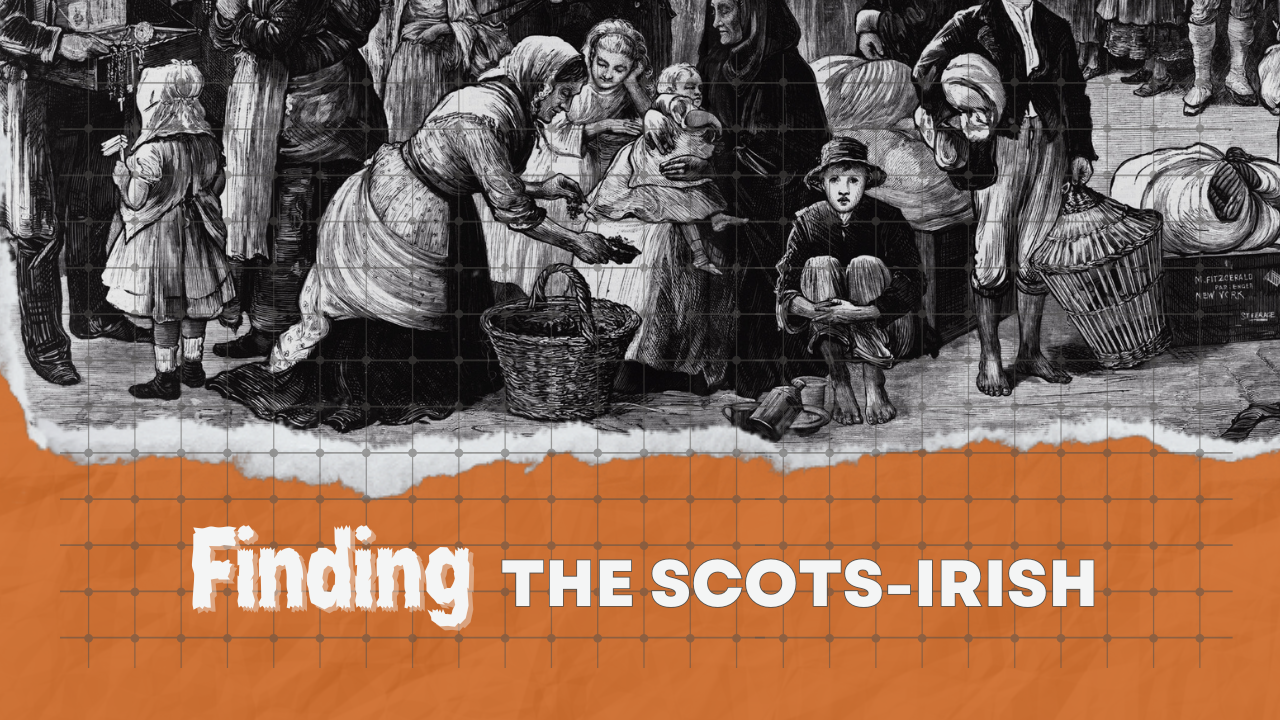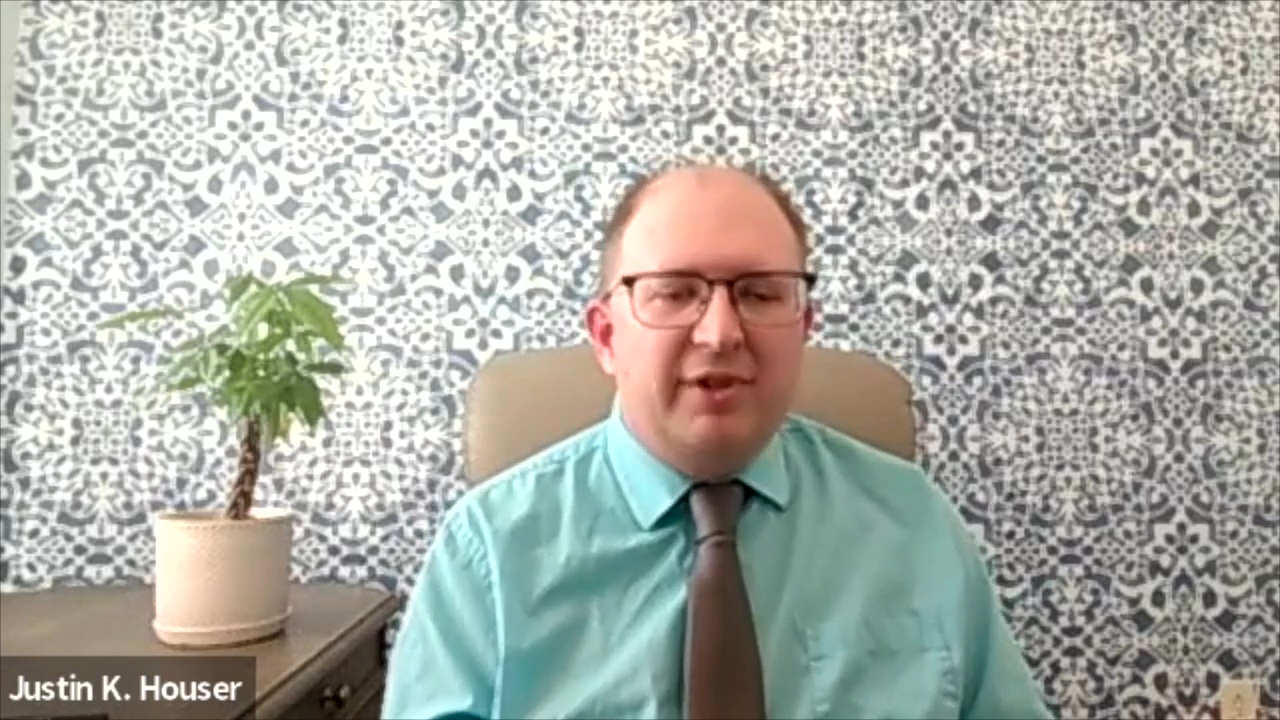Podcast Episode 86: Must Have Records for Scots Irish Research with Justin Houser
Unlock the secrets of Scots Irish genealogy with Justin Houser’s expert tips and historical insights in this must-watch podcast episode.

If you have Pennsylvania ancestors in the 18th or 19th century, chances are they were Scots Irish. Join us as we dive deep into the history of these immigrants from Ulster Ireland and the records they created with lawyer and genealogy speaker Justin Houser.
Meet Justin Houser
Justin Houser resides in Bellefonte, Pennsylvania. By day, he works as an attorney, spending most of his time navigating the legal system, which, surprisingly, aids in his Scots-Irish genealogy research since court records are key sources. He has been practicing law for about 15 years, but his interest in genealogy extends much further back. Growing up, his grandparents encouraged him to explore their family history, and like many Pennsylvanians, he discovered a rich tapestry of ethnic backgrounds in his lineage. The Scots-Irish hold a particularly significant place in his ancestry, second only to the Pennsylvania Germans.
Who Were the Scots-Irish?
The Scots-Irish originated from the border regions between lowland Scotland and northern England. These were lawless and unsettled areas at the time, and many individuals from here moved to Northern Ireland (Ulster) in the 1600s as part of English efforts to colonize Ireland and bring it under English control. These areas were later settled by Scottish Protestant families, leading to the term Ulster Scots.

Scots Irish Journey to America
Many Scots-Irish faced economic and political pressures in Ulster, including increased rents, dependency on flax crops, and religious discrimination. These hardships led to significant emigration to America, starting in 1718 and continuing until the Revolutionary War in 1775. Pennsylvania was a primary destination, and many Scots-Irish settled across the state, contributing significantly to its cultural fabric.
Importance of Court Records and Tax Records
For anyone doing Scots-Irish genealogy, court records and tax records are invaluable. These records provide information that can help establish family connections and track movements.
Using Court Records
Court records are useful for a variety of reasons. They cover a wide range of life events, including criminal cases, civil disputes, land ownership, and more.
"Back then, the Scots-Irish often found themselves involved in various legal matters, which can be traced through court records."

Tax Records are Essential
Tax records are another crucial resource. They offer lists of property owners and taxable items, such as livestock or occupations, providing a snapshot of who lived in an area at a given time. These records can help pinpoint the arrival of ancestors and their economic status.
"Tax records are incredibly detailed and give a comprehensive list of residents in various townships, making them an excellent resource for tracing ancestors."
Land Warrants and Patents
The Scots-Irish often settled on frontier lands and were some of the first to apply for land warrants and patents. These documents detail where individuals lived and give a good indication of their settlement patterns. They provide another layer of data to build a clearer picture of your ancestors.

Challenges and Tips for Scots-Irish Genealogy
Researching Scots-Irish ancestry comes with its unique set of challenges, primarily due to the lack of comprehensive records. However, there are several strategies and resources that can aid in the process.
Persistence and Patience
One of the key traits any genealogist must possess is patience. The fragmented nature of records means you may not find all the information you need in one place.
"Be persistent, be patient, and celebrate the small victories, because this is not easy work."
Utilizing Available Records
Many early records, such as the 1790 census, offer limited information. Here’s where persistence pays off. By examining tax records, court records, and even old newspaper articles, you can piece together your family history.
Online Genealogy Groups
Online groups, such as the Ulster Scots on Facebook, provide an excellent opportunity to connect with other researchers and share valuable information. These groups are often treasure troves of collective knowledge and can provide tips, resources, and even new records you might not have discovered otherwise.
Historical Books and Articles
Secondary sources like historical books and articles, while not primary documents, can offer context and clues. Many 19th-century records and county history books contain anecdotes and stories that can lead to significant discoveries.
"These stories might just be the key to unlocking more details about your Scots-Irish ancestors."

Researching Scots-Irish ancestry is challenging but hugely rewarding. With persistence, patience, and the right strategies, you can uncover a wealth of information about your ancestors.
"Don't give up. Every small discovery is a step towards piecing together your family's history."
Feel free to reach out to Justin for speaking engagements or further guidance in your genealogical journey.
Links and Resources:
Your Pennsylvania Ancestors is distributed through the following channels:



Learn all about the history and details of the Your Pennsylvania Ancestors podcast.
© 2019–2024 PA Ancestors L.L.C. and Denys Allen. All Rights Reserved.
